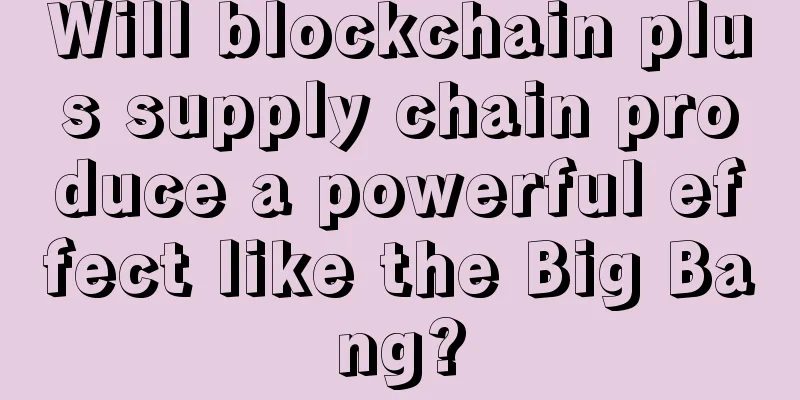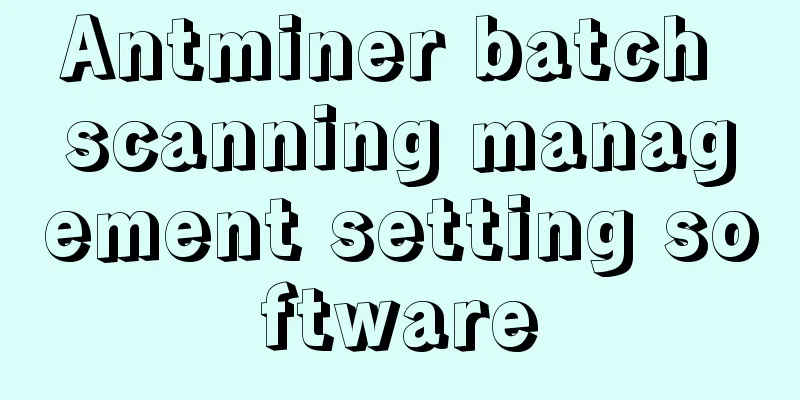Will blockchain plus supply chain produce a powerful effect like the Big Bang?

|
There is so much talk about blockchain, so let’s start with the basics. Blockchain is a distributed public ledger that enables transactions to be conducted in a trusted environment, and it is the underlying technology behind the concept of Bitcoin. A network of computers uses cryptography to allow everyone in the open source network to update the ledger in a secure way without the need for a central authority. The process is virtually impossible to hack, and doesn’t even require a centralized platform. However, one thing that has opened Pandora's box is that blockchain technicians have identified a variety of ways to put blockchain technology into practical applications. Given the potential advantages that a secure environment can provide, everyone expects blockchain to bring a series of benefits to various industries, including tagging drugs and medical records without revealing any sensitive information, using smart contracts to eliminate piracy in the music and film industries, reducing the time and cost of lengthy legal procedures, ensuring voter verification in electronic voting, helping banks and financial services companies solve fraud problems, and promoting lower transaction costs and faster transactions. It should come as no surprise that the financial services industry giants are at the forefront of the blockchain trend. They are all happy to embrace this digital disruptive technology. For the record, R3 CEV (an industry-wide consortium of 42 investment banks) recently conducted a simulated transaction using blockchain technology and is now considering the possibility of using blockchain technology for further testing. Even large banks such as Bank of America, Development Bank of Singapore (DBS) and Standard Chartered are apparently developing blockchain technology for trade finance. Technology giants such as IBM and Microsoft have also announced their blockchain development plans, including the Microsoft Azure Blockchain as a Service (BaaS) project. Consulting firm Accenture has even proposed a smart socket that helps regulate electricity consumption and select suppliers with lower electricity prices. Stepping back, even if Bitcoin eventually fails, its underlying technology (blockchain technology) will still be here. Blockchain technology will certainly attract the interest of buyers because of its potential to improve trust and visibility in the supply chain. A transparent supply chain is a dream come true for purchasing groups because it can avoid unethical practices such as material conflicts, counterfeit products or toxic materials. Transactions on a decentralized network are low-cost, fast, and can track quality assurance throughout the product value chain. There are many benefits to using blockchain technology for procurement. Provenance is a London-based startup that is providing solutions for tracking product authenticity, bringing greater transparency and trust to customers' supply chains. Provence's pilot project is to track the origin or source of tuna caught in Indonesia and sold in Japan. Provence issues a digital passport to the product that guarantees its authenticity and origin. Therefore, sustainable and ethical sourcing and effective product tracking methods do not seem to be far away. Meanwhile, California startup Skuchain is focusing on finding ways to use blockchain technology to boost supply chain financing and unlock billions of dollars in value hidden in letters of credit by creating a paperless environment. These blockchain technologies are expected to revolutionize the $18 trillion global trade finance market by facilitating collaboration among stakeholders in the supply chain network. Blockchain technology can definitely be applied to the supply chain, but it depends on how fast the procurement industry develops. Customers and governments will become more and more aware of blockchain and demand more transparency, traceability and speed. Blockchain technology holds the key to eliminating blind spots in the supply chain. |
<<: Technical analysis of Ethereum market: the price trend is not optimistic
Recommend
Analyzing Bai Baihe's marriage from her facial features
The recent incident involving Bai Baihe has cause...
What is the fate of a woman with a success line on her hand?
It is said that it is useless for girls to study ...
Is Ethereum Gas Fee Really Expensive?
Text: Guo Xinchen Produced by: Gyro Finance Is Et...
Your forehead can tell whether your career is good or not
Your forehead can tell whether your career is goo...
Ethereum will have its first wallet with a WeChat-like interface
Rage Review : Ethereum wants to create a wallet w...
What’s Next for U.S. Crypto Regulation?
I’m in Davos right now, and U.S. President Donald...
Bitcoin is the ultimate alternative to the traditional financial system
Dozens of companies are using the Bitcoin 2022 co...
Palm lines career line to see the index of noble luck
In today's highly competitive society, career...
Ethereum Foundation: Ethereum Mainnet Merge Announcement
Source: Ethereum Foundation official blog Ethereu...
Asian session opened high and then fell back, Huobi.com's Li Lin is cautiously optimistic about Bitcoin
According to FX168, the price of Bitcoin opened h...
How to tell wealth from facial features
Everyone is very concerned about his or her wealt...
How to read the face dragon nose comprehensive analysis
Physiognomy believes that a dragon nose is a very...
Are people with broken palm lines lucky?
Do people with broken palm lines have good luck? ...
Is it good for a woman to have three moles on her face in a triangle? What does it mean when three moles are in a triangle?
We all have moles, but the location and number of...
How to tell luck from face
In fact, a person's luck is related to his or...









